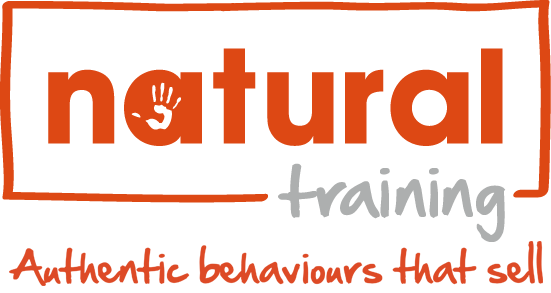“Commitment Closing” is a Natural Training term that describes a salesperson’s ability to always close on a commitment to act. This doesn’t need to be “to buy your product” – in fact many salespeople can undo a fine sales effort by being overzealous with the close.
Instead, commitment closing is all about preparing collaborative, time related milestones in your sales cycle that will give you the chance to test the temperature of the sale along the way.
Here are some best practice tips that will help:
1. MAP the sale, don’t just get pulled along by it
The moment you have some decent visibility of the client, start planning the milestones. You know what tends to happen – but what is going to happen, and when, with this client? At what points do they input? When do you widen the decision making unit? What do they have to do, at which junctures, and why?
2. Collaborate in the sale WITH them, not AT them
It’s not enough for only one person, YOU, to have follow ups and things to do. You need to THEM to have stuff to do. Otherwise you run the risk of the sale being very one-sided. Get them involved, get them feeling the sale, knowing already what it’s like to work with you. Here are a few ways to do that:
- At the start of presentations, ask for structured feedback at the end (one thing you liked, one thing to improve upon).
- Hand the marker pen to the client, rather than spotlighting yourself the whole time
- If a demo, hand the mouse over to them
- Think of meetings as a co-production – have flips all over the place that you have both contributed towards. It’s a DUAL creation, not just yours.
- Use ‘we’ rather than ‘you’ or ‘I’
3. Give them a sense of what it’s like to work with you
Pretend you are working with them, and your commitments are shared. If you take 4 hours to return an email, chances are you will do that, or longer, when they are a client. Don’t let your standards slip when you are showing them what a great partner you are – act as though they are a client already, and showcase your talent via your behaviours.
4. Make everything time related
It’s not enough to leave action items flapping in the breeze. Clients appreciate partners who are in control of the process. It’s okay to ask them to agree to a deadline, and follow it up. Outlook it. Put a day alert on it. Don’t let your clients fail – manage them.
5. Ask “commitment closing questions”
- How’s everything so far?
- Have we delivered up to your expectations?
- Could anything have been better for you so far?
- How might we have served you better up to this point?
- Are you getting a sense of how we like to work with our partners?
- How would you describe this process so far?
6. Have some commitment closing ideas in the kitbag:
- John can I please invite some other interested people into the meeting to get a more well-rounded view of your expectations? (Arrange follow-ups)
- Ask them to find some views of others internally to populate some of the research (by when)
- Ask them to proof small sections of your final document for their views
- Ask for a session to help understand their organisation/chart
- Think about “if we do X, then can you do Y…” – always swapping and trading value rather than giving it
7. Be aware that the real close might be nearer than you think!
The close in your mind might be different to theirs. Always ensure you know what their close looks like – maybe it’s simpler, more effective and quicker than yours! When you think they are ready to buy, they probably are, so ask a simple closing question such as “would you like to give us a try?”
During our sales training we help you to take true control of your pipeline and give you a massive amount of new techniques to advance sales. Contact us today to find out more!


